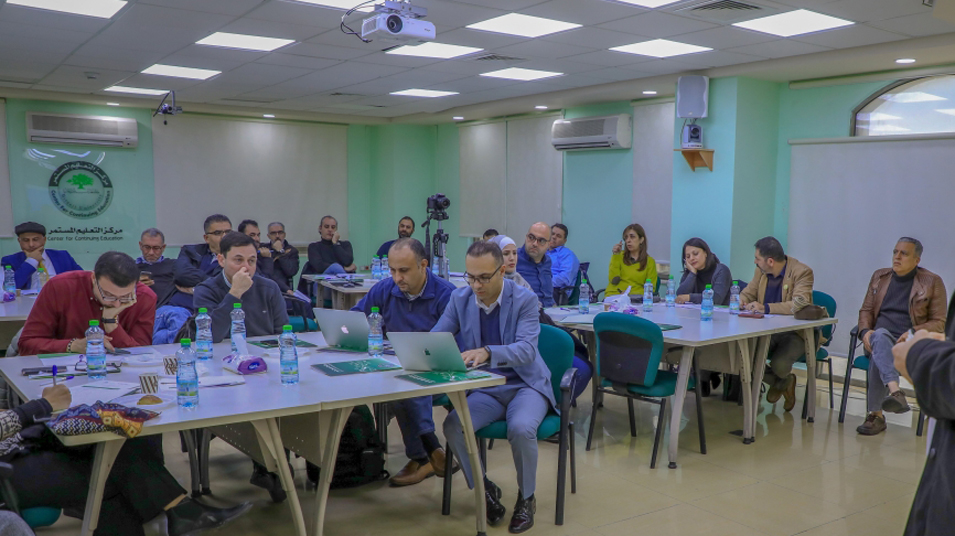CCE workshop discusses opportunities to develop data economy in MENA
Birzeit University’s Center for Continuing Education (CCE) held an extensive workshop to present the outcomes of a study on the opportunities and challenges faced by the data economy in the Middle East and North Africa (MENA). This workshop comes as part of the center’s “Steps toward the future of businesses” project, implemented in collaboration with the International Development Research Center (IDRC).
The workshop gathered experts and professionals who are engaging in innovation and data science.
The results of the study, conducted by researcher Abed Khouli, emphasize the limited presence of startups and companies specialized in data science in the MENA region, considering its great potential and the available financial and human resources. They furthermore point out the obstacles that are preventing the rise of a data economy in the region; they include the strict regulations and policies of the data ecosystem, a lack of supportive incentives, the prevailing fragmentation of markets, the prevalence of stereotypical education systems, low capacities in the region’s infrastructure, the unavailability of open data, a lack of creativity and original ideas with attempts to copy other existing models, and a lack of knowledge and awareness regarding the field of data economy and its importance to the future of work.
In Palestine, the study shows, the economy is captive, and there are limited resources and low rates of investment into the data economy that also suffers due to the conditions of widespread reliance on aid and unsustainable projects.
The study recommends fostering local and regional collaboration, overcoming organizational and logistics hurdles and opening up to markets, investing in research and development, developing technical capacities, raising awareness of the data economy on all educational levels, and releasing open-data sets within the regulations and boundaries of data-protection and ethical privacy guidelines.
According to Marwan Tarazi, director of CCE, the study results reveal that a great potential exists in Palestine, and its recommendations highlight not only the opportunity of data to contribute to the development of communities, the economy, and institutions but also the need to invest in and empower youth with the skills needed to shape the Fourth Industrial Revolution.
Explaining the revolution, Tarazi mentioned rapid changes in the labor market that require graduates to have innovative skills. “The ongoing fourth industrial revolution,” Tarazi stated, “has created new jobs and made others obsolete while presenting real opportunities for economic flourishing, individual distinctiveness, and company uniqueness.” These developments, he asserted, will eventually cause youth unemployment rates to decline and will maximize the Palestinian community’s ability to deal with the numerous economic and political challenges it must face daily.
Osama Mimi, the director of CCE’s Unit for Learning Innovation, declared that academic institutions know that they must develop their students' skills, enabling them to deal with the large number of available data and adapt to the changing labor market needs. He added that the project was instigated by the rapid changes that are increasing the demand for experts and professionals in the data science field.
A draft of the study is available here.







